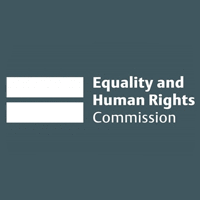The Equality and Human Rights Commission (EHRC) has urged the UK and Welsh governments to take further action to improve the rights of people from ethnic minority backgrounds and eliminate racial discrimination.
This comes as the EHRC updated its Human Rights Tracker which assesses compliance with the latest recommendations from the UN Committee on the Elimination of Racial Discrimination (CERD).
As the National Human Rights Institution for England and Wales, the EHRC monitors how well the UK and Welsh governments put their international human rights obligations into practice.
In its latest round of assessments, the regulator examined the action – or inaction – by governments to tackle racial discrimination in the UK and Wales. While it found some evidence of progress, the EHRC noted the governments had taken little or no action in some key areas recommended by the UN.
The EHRC assesses action depending on if governments have taken ‘all’, ‘significant’, ‘some’, ‘no’ or ‘inconsistent’ action towards recommendations made by the UN. Of its 52 new assessments, the regulator found:
UK government
- Important steps to address racist hate speech online: The UN CERD recommended that the government should do more to combat racist hate speech on the internet and social media. In its new Human Rights Tracker assessment, the EHRC concluded the government had taken significant action to implement the recommendation, noting the introduction of the Online Safety Act 2023 and recent guidance from Ofcom which aims to help prevent and reduce racist hate speech online.
- No action to combat racial profiling by law enforcement: The UK government have not taken any steps to prevent racial profiling by law enforcement. Despite the UN CERD’s recommendations, the government have not introduced laws that explicitly ban racial profiling or taken steps to end the practice by police, immigration officers and other public officials.
Welsh Government
- Significant action in implementing anti-racist action plan: The UN CERD recommended detailed action plans to eliminate racial discrimination and inequality. The EHRC noted the action taken by the Welsh Government to establish its Anti-racist Wales Action Plan and reaffirm its commitment to be an anti-racist nation by 2030.
- Limited action to tackle racist bullying in schools: The EHRC noted that the Welsh Government has taken some action to end discrimination and racist bullying in schools, including publishing a suite of resources to tackle bullying and racism in education settings. However, it highlights a lack of action from the government to make reporting and recording such bullying a statutory requirement for schools.
Baroness Kishwer Falkner, Chairwoman of the Equality and Human Rights Commission, said:
“As an ‘A’ status human rights institution, we hold our governments to account without fear or favour. We independently monitor the UK and Welsh governments’ progress against the UN CERD recommendations and have updated our Human Rights Tracker to reflect their action – or, in many cases, inaction – to eliminate racial discrimination.
“Everyone should be able to enjoy their human rights and be free from discrimination, no matter their race. Yet there is a stark lack of action to tackle discrimination in key areas, from racial profiling by law enforcement to racist bullying in schools.
“We will continue using our Human Rights Tracker to hold the UK and Welsh governments accountable and ensure they stand by their commitments to combat racial discrimination and make Great Britain fairer for everyone.”
The EHRC’s latest assessments follow the report submitted to the UN CERD last year, in which it raised concerns about the experiences many people from different ethnic minorities face across living standards, justice and employment in England and Wales.
The human rights regulator made a series of recommendations to help the UK and Welsh governments address these issues, including improving accommodation provision at Gypsy, Roma and Traveller sites. In its latest set of assessments, the EHRC noted some action had been taken to provide culturally appropriate accommodation for Gypsy, Roma and Traveller communities in England and Wales. However, it also raised concerns that the UK government had not repealed legislation criminalising unauthorised encampments in England and Wales, noting the impact on these communities.
